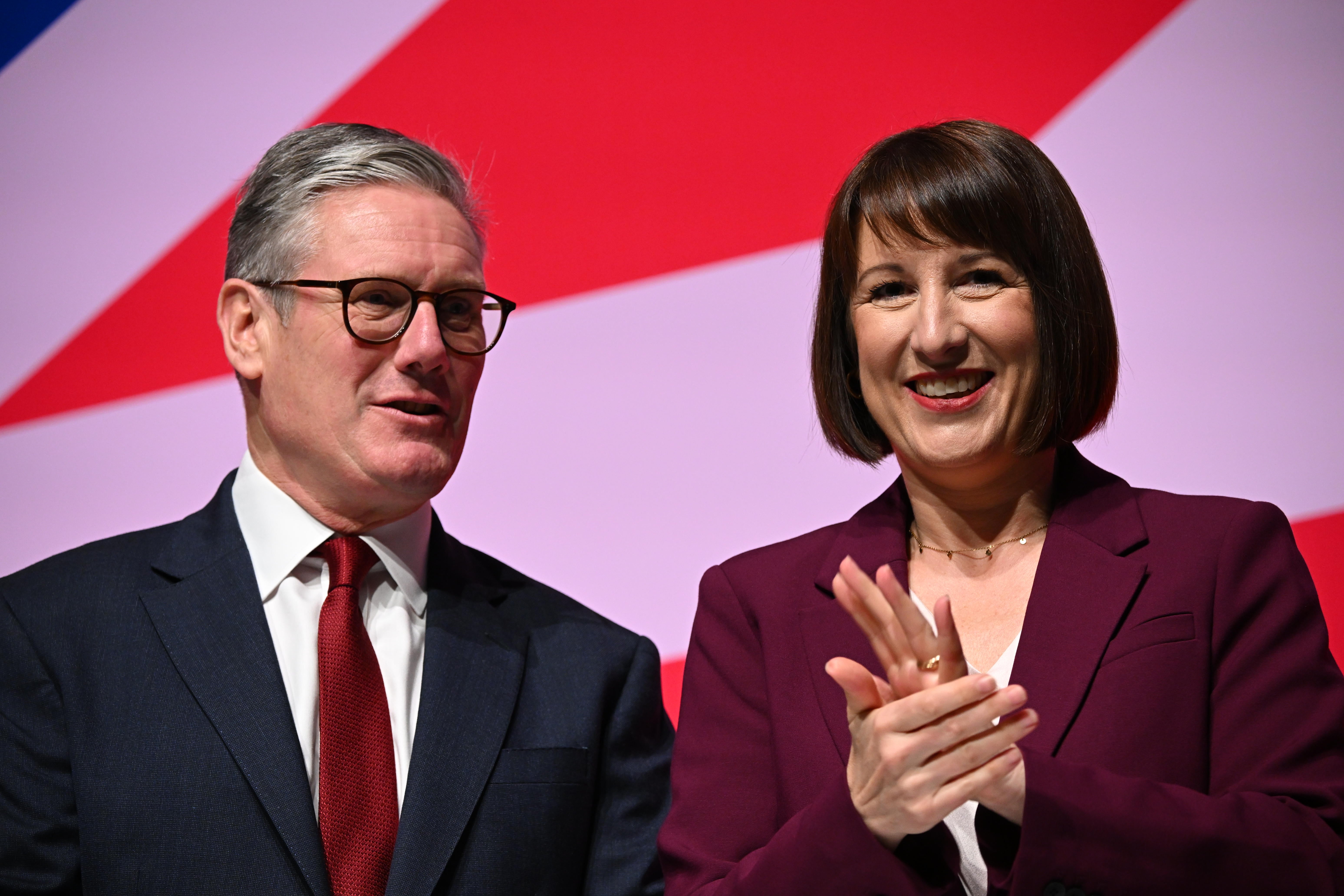Keir Starmer’s determination to rebuild Britain is why he was voted in
Editorial: After his chancellor’s rapturously received conference speech, the prime minister must now use his address to revive the hope that the public invested in his party, explain why recent wobbles are an aberration – and convince the country that Britain’s best days lie ahead

It almost beggars belief that – following a landslide election victory, and a prime ministerial debut that emphasised serving the people and responsibility in all its many aspects – a central message on the eve of the Labour conference was the need to reset the narrative, rather than celebrate the moment. But that is how it was – and for two reasons.
One was the gloomy economic prognosis that has dominated government utterances in its first weeks. This came notably from the chancellor Rachel Reeves, whose message of doom and despondency and an unexpected £22bn “black hole” served to dash many of the hopes that had been generated by the election, and left large swathes of the population fearful of what unpleasant surprises might be waiting next month when she presents her first Budget.
Another was the series of own goals – from the means-testing of the pensioners’ winter fuel allowance, which came out of the blue and proved a political liability out of all proportion to the money saved; to revelations about the gifts received by Sir Keir Starmer and senior ministers from the millionaire Labour peer, Lord Alli.
The government may have been in office for less than the proverbial 100 days, and it would be churlish for the country not to give them a fair chance.
It will be up to the prime minister to rekindle a sense that the future will be worth working towards when he gives his big speech on Tuesday. He will need to capitalise on the substance of how he and his government plan to remake the country and improve people’s lives. He will need to draw the big picture of national aspiration and possibility, while acknowledging the small picture difficulties faced by so many.
This could be harder now that the “freebies” disclosures have underlined what many people would see as the gulf of assumptions that separates their lives from his.
Rachel Reeves offered a preview of how despondency might be leavened with hope, when she took to the podium, stressing the landmark she represented as the first female chancellor in the 800 years of that office.
The difficulties of combining essentially two conflicting messages were clear, however. On the one hand, there were the political points to be scored from the Conservatives and the deficit she says they recklessly left behind, and, on the other, the economic stability that Labour was promising and the growth that would be the reward down the line. But that prospect seemed very far off.
And while her pledge that there would be “no return to austerity” might be seen as the central commitment of her speech, there were still the hard decisions that she said would have to be made in her Budget next month, even as she reiterated Labour’s promise not to touch three major taxes – income tax, VAT and corporation tax – in the name of protecting “working people”. There was a hint that some benefits could take a hit, too.
Her refrain, “that’s the Britain we’re building, the Britain I believe in”, was an attempt at the positive, as was talk of investment in infrastructure – even though some indicators might point in the opposite direction.
Even as she justified the above-inflation rises for public sector workers, as being not just in their interests as hard-pressed employees who had had no pay rise for years, but in the interests of the public who needed their services, news came through that NHS nurses had rejected their pay offer portending a possible new round of disruption. The rapturously received announcement of a Covid Corruption Commissioner will also have to be measured against what funds, if any, may be recouped.
There may also have been those in the hall, and many more at home, for whom the iniquity of Rishi Sunak’s helicopter contract and Tory “dishonesty” and “self-interest” might suddenly have seemed less unique, in the light of recent revelations about the luxury gifts that she, the prime minister and other ministers are now known to have received.
The prime minister’s challenge is to banish these distractions and restart the clock from where it was before the riots, before the winter fuel allowance and before the freebies.
Most of all, though, he has to revive the hope that voters invested in his party on 4 July, to explain why his government deserves time and why the past few weeks have been an aberration, caused in part by an unfamiliarity with power and not the norm for a government doomed to disappoint.
If, as Reeves triumphantly concluded, Britain’s best days lie ahead, he must convince the country that the destination is reachable and that he knows how to get there.






Join our commenting forum
Join thought-provoking conversations, follow other Independent readers and see their replies
Comments